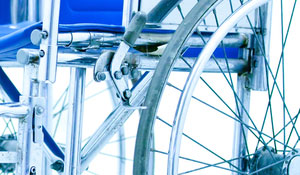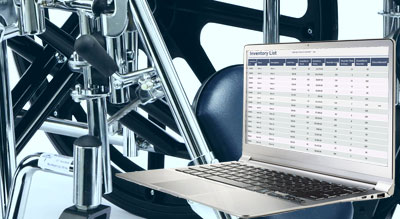As the world slowly but surely returns to normal, surveyors will take to the road once again to visit durable medical equipment organizations across the United States. For several months CMS suspended the accreditation process. On August 12, 2020, CMS gave the approval to resume surveys both onsite and virtual visits (with a follow up onsite visit), or a combination of onsite and virtual survey. With these new guidelines, CMS and the accrediting bodies are beginning to resume surveys with slightly revised procedures and protocols.
HQAA Blog
Topics: Renewing Accreditation, Quality Standards, HQAA Accreditation, HME Accreditation Requirements, Compliance, CMS, Surveys
Because of the nature of our work, the durable medical equipment industry did not close our doors, shelter in place, or shut down for the Covid-19 Pandemic. We did, however, change the way we do business in many ways. Some of these changes will undoubtedly get back to normal as our nation and the world climb out of the pandemic. And of course, many of these changes will become the “new normal” and are destined to remain changed forever. At the time this blog article is being written, HQAA is carefully monitoring the industry as well as law and regulation and CMS policy to determine how accreditation surveys will be performed in both the short and long term. More on that in the weeks to come.
Topics: Employee Training, HIPAA, HME Accreditation Requirements, Patient File Requirements, Materials Management, Showroom, Retail, Delivery, Oxygen, Warehouse, Customer Service, Business Practices, Marketing, Infection Control
On a recent survey, I was chatting with the staff member who was responsible for cleaning and disinfecting the rental medical equipment. This particular organization had traditional DME patients, but also serviced a Hospice contract, so the equipment flowed mightily through the warehouse’s clean, dirty, and waiting to be repaired areas. As I was asking him about the cleaners and disinfectants he used, I noticed a poster above his workbench. It was one of those pithy and ubiquitous “keep calm” sayings: “KEEP CALM & MAINTAIN CLEANLINESS.” He smiled and shrugged when he saw me eyeing the poster. This staff member took his responsibility very seriously and was doing an excellent job. His paperwork and technique were both very good, his workspace was orderly and clean, and he understood the underlying reasons it was so important to clean equipment properly for staff safety as well as patient safety.
Topics: Quality Standards, HME Accreditation Requirements, Materials Management, Avoiding Deficiencies
Nobody wants to have a customer complain about any aspect of their business. Complaints are negative feedback, indicative of an unhappy customer, and generally a bad thing. They can be harsh or mild, constructive or destructive, fair or unfair, deserved or not deserved. But at the core of any customer complaint, there is feedback about a customer experience, or at least their perception of that experience. And this information and feedback can be a treasure trove of information to use to improve the customer experience, your internal processes, and how your organization does business.
Topics: Employee Training, Quality Improvement, HME Accreditation Requirements, Process Improvement, Complaint Process, Customer Service, Business Practices
A few years back, at 5:00am Saturday during the coldest February Northern Minnesota had seen in decades, a longtime home care patient’s oxygen concentrator failed. The patient’s wife retrieved an E cylinder that was for back up from the guest bedroom and proceeded to try to open the gauge. Her husband—the patient—tried as well but neither could get the tank to open. The couple was a little panicky because the patient had been using oxygen continuously for over a year with only a few moments here and there off oxygen. Regular delivery for portable cylinders was Monday, and they were down to two small portable cylinders with a total of about one hour of oxygen combined.
Topics: HME Accreditation Requirements, Compliance, Delivery, Oxygen, Customer Service
New Year’s Day --with its resolutions, new beginnings, and fresh start attitude-- is a perfect time of year to reflect on continuous improvement and making ourselves better as not only individuals, but as companies set up to serve the public and our customers. It is also a good time to review ways to improve our bottom line, our operational efficiencies, our general attitude, and our business practices. This sometimes requires revisiting mistakes from our past, things we did wrong, and looking at how we’ve improved them. Deficiencies from our past surveys are certainly a worthwhile thing to look at it in an effort to improve.
Topics: Renewing Accreditation, Quality Standards, HQAA Accreditation, HME Accreditation Requirements, Process Improvement, Avoiding Deficiencies
Many in the home medical equipment industry equate policy manuals to their accreditation inspections. And of course, these bulky tomes are certainly a large part of the accreditation and survey experience for every DME. Policy manuals serve as the road map for how work gets done within an organization, a set of rules for the organization, and the document that defines the structure, function, and philosophy of the organization. Let’s look at what a policy manual should contain and how it impacts not only accreditation, but also the overall day-to-day operation of an organization.
Topics: Employee Training, HIPAA, Security, Personnel Files, Quality Improvement, Billing, Renewing Accreditation, Quality Standards, HQAA Accreditation, HME Accreditation Requirements, Patient File Requirements, Compliance, Patient Privacy, Clinical Practice Guidelines, Materials Management, Avoiding Deficiencies, CMS, Complaint Process, Quality Care, Showroom, Retail, Delivery, Clinical Respiratory Services, Oxygen, Warehouse, Safety Officer, Competence, Customer Service, Disaster Preparedness, Emergencies, Business Practices, Marketing
Ongoing Staff Education in Your HME Organization
“Education is the passport to the future, for tomorrow belongs to those who prepare for it today” ……………Malcolm X
All accrediting bodies, HQAA included, have standards that require an effective equipment tracking system in place at every organization surveyed. Tracking systems are essentially a tool to help you keep track of where all your equipment and supplies are at any given time. The purpose of these tracking systems is for not only good overall inventory control and management, but also to facilitate a recall in the event a manufacturer or the FDA institutes a recall.
Topics: HME Accreditation Requirements
Towards the end of the Provision of Services (PS) standards, almost to the end of the section, is the very simple accreditation standard PS 9: The Coordination of Care. The standard, in very simple, straightforward language, reads:
The organization documents the coordination of care between all those involved in the delivery of services or equipment/devices to the client. The organization documents communication with the client and between providers in a standardized manner within the client medical record.
Topics: HME Accreditation Requirements, Patient File Requirements, Quality Care











